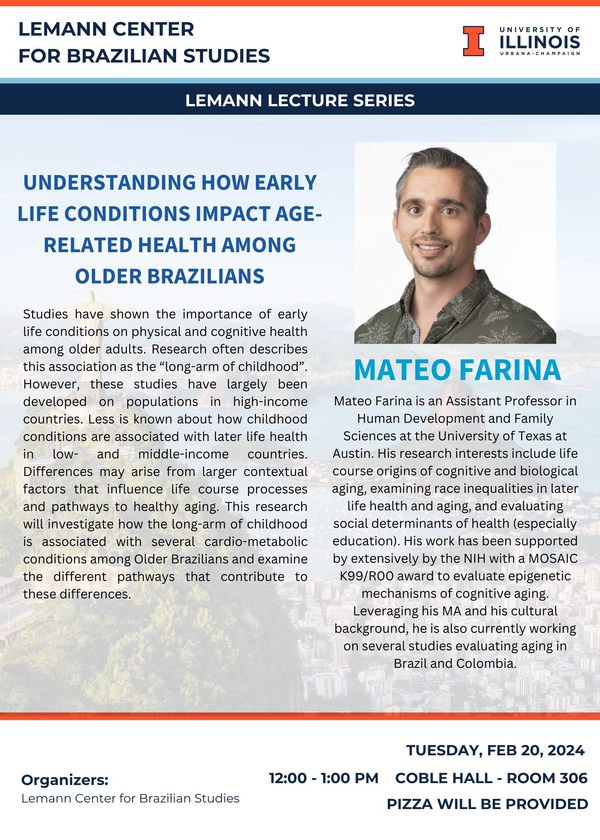Lemann Lecture Series | Mateo Farina | Understanding How Early Life Conditions Impact Age-Related Health Among Older Brazilians
Feb 20, 2024 12:00 - 1:00 pm
Coble Hall 306

- Sponsor
- The Lemann Center for Brazilian Studies
- Speaker
- Mateo Farina is an Assistant Professor in Human Development and Family Sciences at the University of Texas at Austin. His research interests include life course origins of cognitive and biological aging, examining race inequalities in later life health and aging, and evaluating social determinants of health (especially education). Recent work has been published in Social Science and Medicine – Population Health, American Journal of Public Health, and Journals of Gerontology: Social Sciences, along with several others. His work has been supported by extensively by the NIH with a MOSAIC K99/R00 award to evaluate epigenetic mechanisms of cognitive aging. Leveraging his MA in Latin American Studies and his cultural background, he is also currently working on several studies evaluating aging in Brazil and Colombia.
- Contact
- Lemann Center
- lemann@illinois.edu
- Views
- 187
- Originating Calendar
- Lemann Center Events
Studies have shown the importance of early life conditions on physical and cognitive health among older adults. Research often describes this association as the “long-arm of childhood”. However, these studies have largely been developed on populations in high-income countries. Less is known about how childhood conditions are associated with later life health in low- and middle- income countries. Differences may arise from larger contextual factors that influence life course processes and pathways to healthy aging. This research will investigate how the long-arm of childhood is associated with several cardio-metabolic conditions among Older Brazilians and examine the different pathways that contribute to these differences.